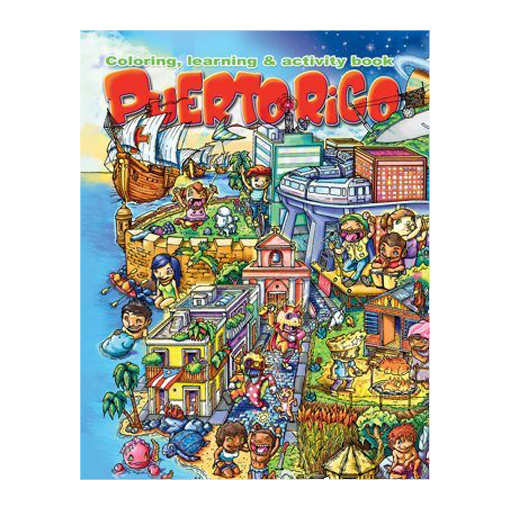Caribbean Travel Tips
How to Sleep When You Travel. Tips to improve your vacations
Travelling may be a thrilling journey. However, it often comes with a widespread project: sleep disruption. It’s very important to address it to have a nice trip, you know? Whether it’s a move-country road ride or a global flight, retaining a wholesome sleep timetable is vital for making the most of your vacation. So I’ll giving you some vital tips for this today!
First, you should know this: what can sleeping poorly do? Well… it can lead to fatigue, irritability, and a weakened immune gadget, detracting from your tour enjoyment. We definitely don’t want that! In this text, we will discover how to sleep when you tour and provide recommendations to enhance your vacations to ensure you get the relaxation you need.
Understanding the Challenges
Jet lag is one of the most common sleep disruptors for vacationers crossing multiple time zones. It happens while your internal frame clock is out of sync with the nearby time at your vacation spot. Symptoms include insomnia, daylight fatigue, issues concentrating, and digestive problems.
Sleeping in a new vicinity can be difficult. Different noises, strange beds, and temperature changes can make falling and staying asleep hard. Hotels, excursion leases, or even buddies’ houses might provide different consolation and protection than your mattress.
Travelling may be worrying, whether or not it’s because of the logistics of having your destination, navigating a brand new metropolis, or the excitement and anticipation of your holiday. Stress can substantially impact your potential to sleep correctly.
Long flights, car rides, or train trips can result in bodily pain. Sitting for prolonged intervals can cause stiffness and pain, making it more challenging to relax and sleep when you reach your vacation spot.
Preparing for Your Trip
Adjust Your Sleep Schedule
If you’re travelling across time zones, adjust your sleep schedule a few days before your trip. Gradually shift your bedtime and wake-up time to match your destination’s time zone. This can help ease the transition and reduce the severity of jet lag.
Pack Smart
Bring items that can help you sleep better, such as:
- A travel pillow and blanket for comfort during transit.
- Earplugs or noise-cancelling headphones block out noise.
- An eye mask to keep out light.
- Lavender essential oil or other calming scents.
Stay Hydrated
Dehydration can exacerbate jet lag and make it harder to sleep. Drink plenty of water before and during your journey. Avoid excessive caffeine and alcohol, as they can disrupt your sleep patterns.
In-Transit Sleep Tips
Choose the Right Seat
If you’re flying, select a window seat to lean against the wall and avoid being disturbed by other passengers. Are you asking why? Well, there’s an obvious reason for this! You should try to secure a seat with ample legroom and a recline option in cars or trains.
Create a Sleep-Conducive Environment
Use your travel pillow, blanket, eye mask, earplugs, or noise-cancelling headphones to create a comfortable and quiet environment. Listen to calming music or white noise to drown out background sounds.
Practice Relaxation Techniques
Deep breathing exercises, meditation, or progressive muscle relaxation can help calm your mind and body, making it easier to fall asleep. Consider downloading a relaxation app or guided meditation to use during your journey.
At Your Destination
Establish a Routine
This is very important, okay? Once you arrive at your destination, you HAVE TO establish a consistent sleep routine. Keep this in mind all the time. Go to bed and wake up simultaneously daily to help regulate your internal clock and to avoid sleeping issues.
Expose Yourself to Natural Light
Natural light helps regulate your circadian rhythm. Spend time outside during the day, especially in the morning, to help your body adjust to the new time zone. Avoid bright screens and artificial light close to bedtime.
Create a Comfortable Sleep Environment
Make your sleeping vicinity as snug as possible. Adjust the room temperature to your liking, use blackout curtains to block out light, and make sure your mattress and pillows are supportive. If you’re in a loud area, use a white noise gadget or app to drown out disturbances.
Stay Active
A regular bodily pastime will let you sleep higher. Incorporate workout into your tour plans, whether a morning jog, a swim, or truly walking around and exploring your vacation spot. However, keep away from vigorous exercise close to bedtime.
Limit Naps
While napping may be tempting, specifically if you’re feeling jet-lagged, attempt to restrict naps to twenty-half-hour and avoid slumbering late in the afternoon. This will help you sleep better at night.
Dealing with Jet Lag
Gradual Adjustment
If viable, regularly adjust to the new time zone by moving your timetable an hour or two towards your destination’s time region every day before your journey. This can make the transition smoother.
Melatonin Supplements
Do you know what melatonin is? If you do, great! If not, let me tell you: melatonin is a hormone that allows modified sleep. Taking it as a dietary supplement can help your body regulate to a new time area (isn’t that amazing?). Consult with a healthcare expert before using melatonin, in particular, if you have any fitness situations or are taking other medications.
Stay Consistent
Keep a constant sleep timetable, even on weekends or days off. Consistency allows you to beef up your body’s sleep-wake cycle.
Consider Other Alternatives
If this problem goes beyond travel, consider obstructive sleep apnea surgery. Many people postpone this practice because they think it is secondary, not realizing it will significantly improve their quality of life.
Practical Tips for Specific Travel Scenarios
Long-Haul Flights
- Use Sleep Aids Cautiously: Over-the-counter sleep aids can help, but use them sparingly and most straightforwardly after consulting a healthcare expert.
- Stay Hydrated: Drink water frequently; however, avoid immoderate caffeine and alcohol.
- Move Around: Regularly stand up, stretch, and walk around the cabin to reduce stiffness and enhance circulation.
Road Trips
- Take Breaks: Schedule regular breaks to stretch and relax. Avoid using it for lengthy durations without a wreck.
- Share Driving Duties: If touring with others, take turns ensuring all sundry can relax.
- Sleep Safely: If you experience tiredness, pull over to a safe location and snooze.
Hotel Stays
- Personalize Your Space: Bring gadgets from home, like a favourite pillow or blanket, to make your hotel room experience extra acquainted and snug.
- Request a Quiet Room: Ask for a room away from elevators, ice machines, and busy streets to limit noise.
- Use the Hotel Amenities: Many resorts offer services like blackout curtains, white noise machines, and snug bedding. Take advantage of those to improve your sleep exceptionally.
Conclusion
Getting excellent sleep at the same time as touring is crucial for a successful and exciting holiday. By getting ready in advance, growing a comfortable sleep environment, and following realistic suggestions to manage jet lag and sleep disruptions, you can ensure you’re nicely rested and ready to maximize your travels. Prioritizing your sleep will help you to realize that your vacations are extra enjoyable, your temper is higher, and your standard level is more robust. Happy travels and candy desires!







